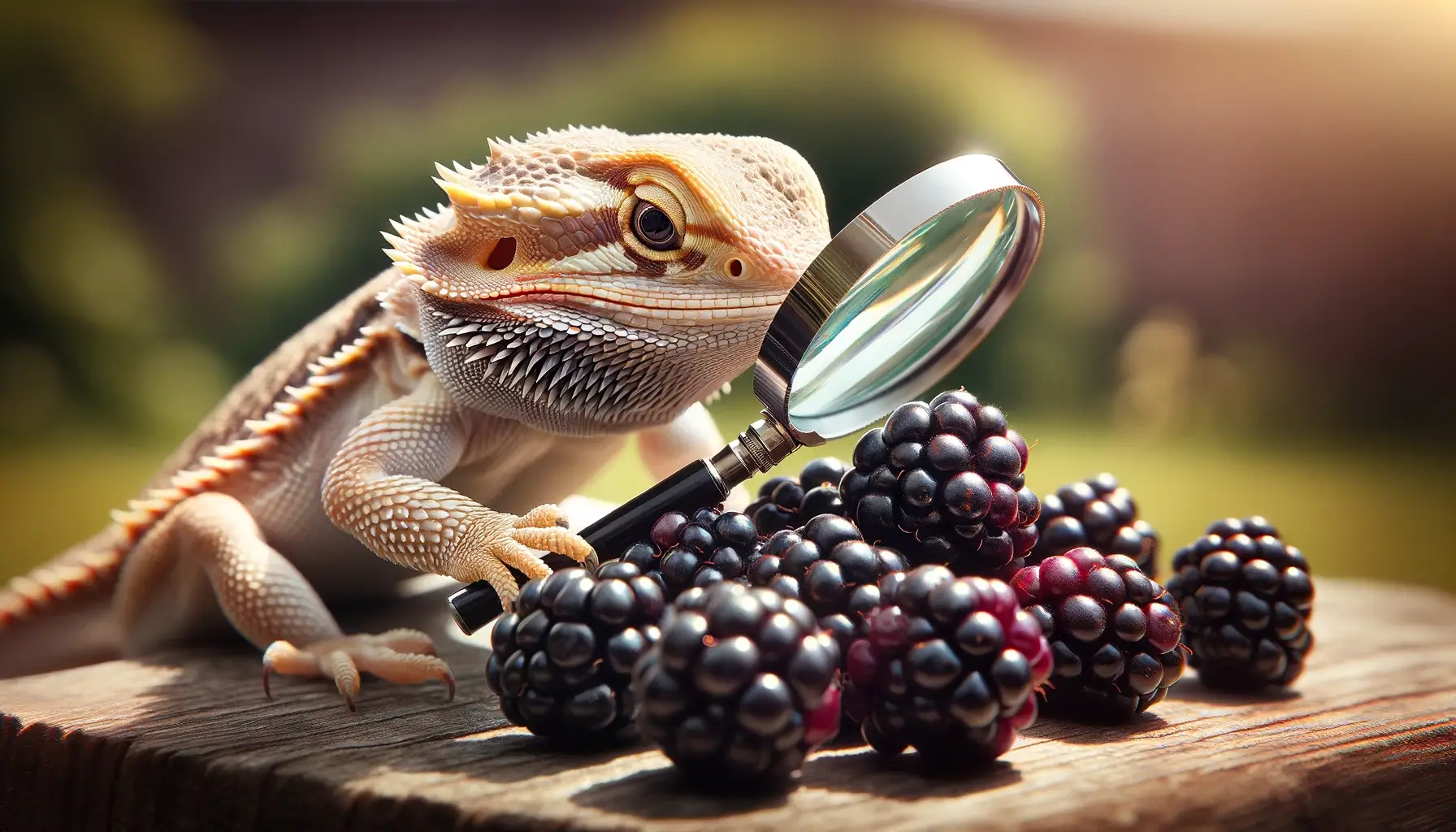Imagine you’re at home, observing your bearded dragon, wondering, “Can my pet safely eat a blackberry?” The answer isn’t as straightforward as you might think. While these berries are a source of antioxidants, vitamins, and minerals, certain factors should be considered before incorporating them into your pet’s diet. Is it beneficial or harmful? Stick around to discover the intricacies of a bearded dragon’s dietary needs.
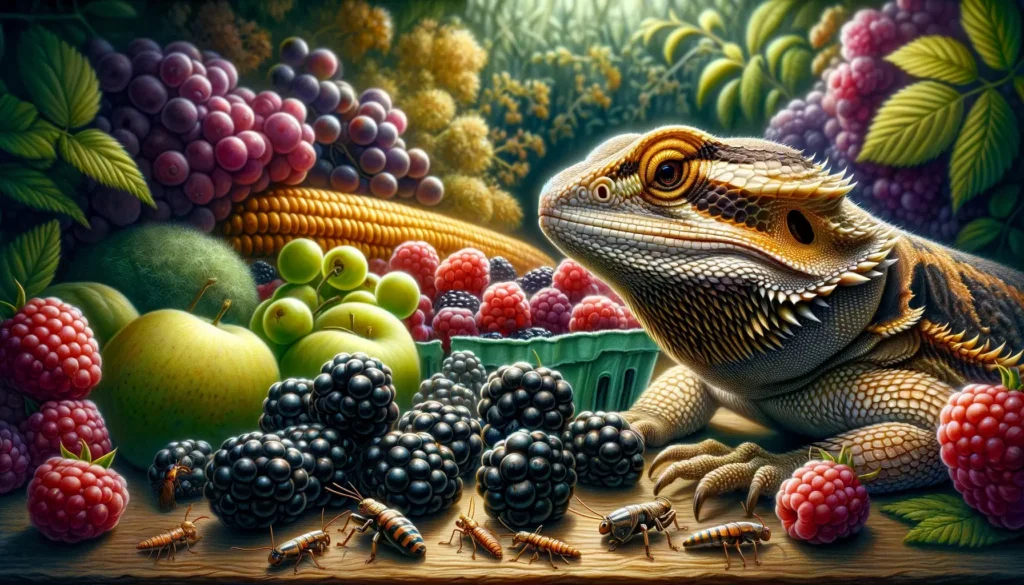
Key Takeaways
- Bearded dragons can eat blackberries in moderation due to their high sugar and acidic content.
- Blackberries provide Vitamin C, fiber, and antioxidants beneficial for bearded dragons’ health.
- To prevent health issues, limit the feeding of blackberries to once or twice a week.
- Various other berries like strawberries, blueberries, and raspberries can also be included in their diet for nutrient diversity.
Understanding Bearded Dragon’s Diet
To fully comprehend what bearded dragons can eat, you need first to understand their natural diet, which primarily consists of a diverse array of insects, fruits, vegetables, and small rodents in the wild. This diet equips them with the necessary nutrients for growth and development.
Now, can bearded dragons eat blackberries? The answer is yes, they can, in moderation. Blackberries, raspberries, and blueberries can be part of their fruit intake. Maintaining a balance is essential because, while these fruits are good for them, too much can lead to health problems.
But what about baby bearded dragons? Can baby bearded dragons eat blackberries? Absolutely! However, feeding them smaller portions is crucial because their digestive system is not fully developed.
Can bearded dragons eat raspberries and blackberries together? Yes, they can, but remember, variety is key. While these fruits are nutritious, they should not form the bulk of their diet.
Nutritional Value of Blackberries
Having established that blackberries can be a part of your bearded dragon’s diet, let’s examine the nutritional content of these fruits to understand their health benefits.
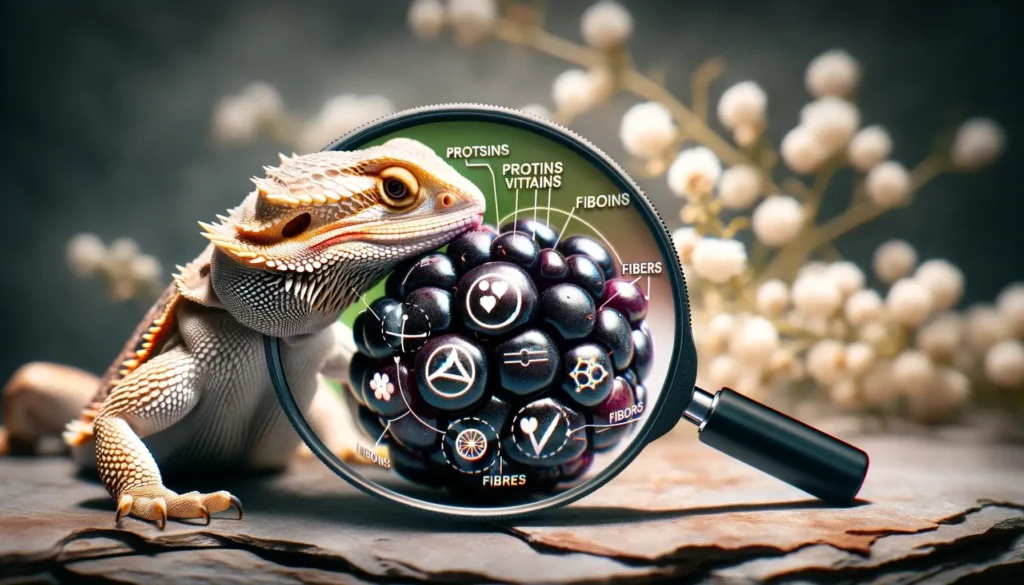
Blackberries are packed with several vitamins and minerals. Specifically, they’re rich in:
- Vitamin C: This nutrient aids in wound healing, the absorption of iron, and the maintenance of bones and cartilage. For a bearded dragon, it’s crucial for overall health.
- Fiber: Blackberries have a high fiber content, which aids in digestion. This benefits your bearded dragon’s gastrointestinal health, helping prevent constipation.
- Antioxidants: Blackberries are loaded with antioxidants, which help protect the body against the harmful effects of free radicals.
Additionally, blackberries contain a relatively low amount of sugar compared to other fruits. This makes them a healthier choice for your bearded dragon, given that these reptiles don’t need a lot of sugar in their diet.
Potential Risks of Feeding Blackberries
While blackberries offer numerous health benefits for your bearded dragon, it’s essential to consider some potential risks associated with feeding them these fruits. The main concern is their high sugar content. Bearded dragons have a low sugar tolerance, which can be detrimental to their health if consumed in large amounts. This could potentially lead to obesity and other metabolic disorders.
Another risk factor is the acidic nature of blackberries. While a healthy bearded dragon can handle a bit of acidity, overconsumption might lead to digestive issues. High acidity can disrupt their gut flora, leading to discomfort and potential health problems.
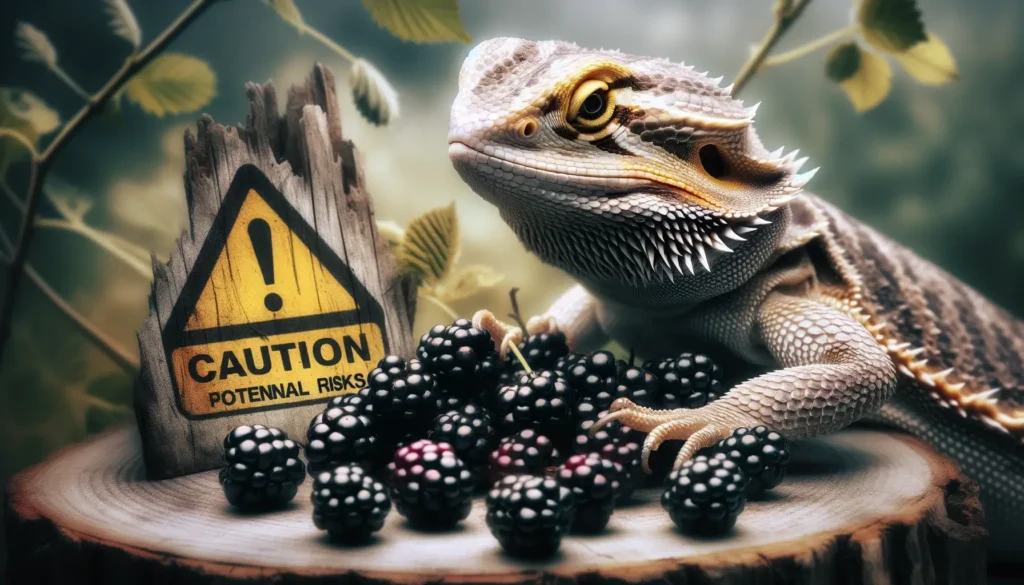
Lastly, like any other fruit, blackberries should always be fed in moderation. Overfeeding can result in nutritional imbalances, as they might neglect their diet of insects and greens. Always thoroughly wash the blackberries, too, as they might be coated with pesticides or other harmful substances.
While these risks don’t mean blackberries are bad for your bearded dragon, they suggest caution. They must balance their diet and offer blackberries as a treat rather than a main food source. By doing so, you can maximize the benefits while minimizing the risks.
How Often Should They Eat Blackberries?
Determining the right frequency of feeding blackberries to your bearded dragon is crucial for maintaining their health and nutritional balance. Bearded dragons are omnivorous, consuming both plants and insects, with a diet that should consist mainly of vegetables and leafy greens.
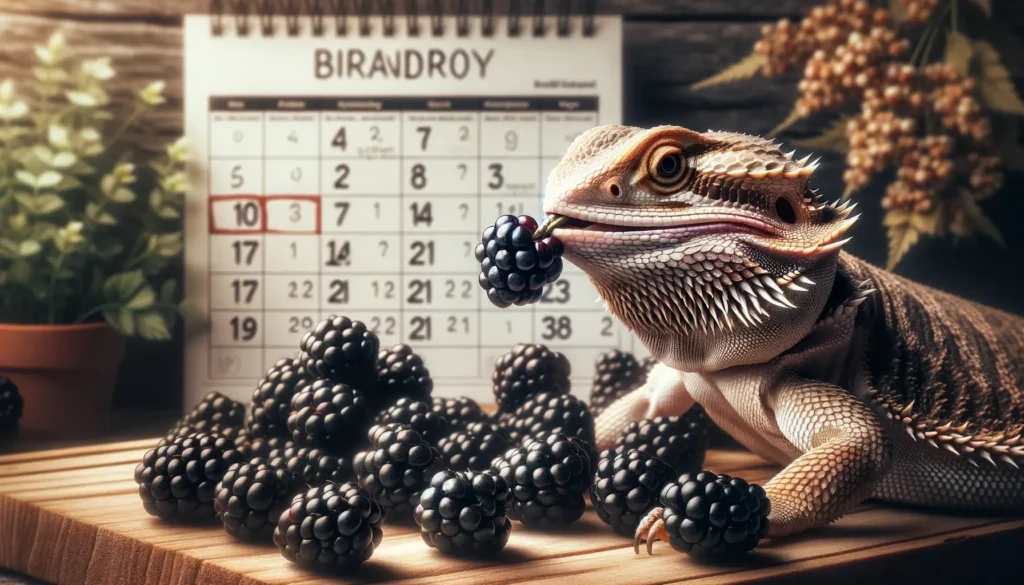
Blackberries, being a fruit, should be treated as a treat rather than a staple in their diet. So, the question remains: how often should they eat blackberries?
Here’s a simple guide:
Frequency: Ideally, blackberries should be given to your bearded dragon once or twice a week. This frequency helps maintain a balanced diet while also providing variety.
Quantity: Limit the blackberries to one or two per feeding session. This ensures your dragon isn’t consuming too much sugar, which could lead to health issues like obesity or tooth decay.
Diet Diversity: Remember to rotate the types of fruits you offer to your dragon. This rotation ensures they receive a range of nutrients and prevents them from becoming picky eaters.
Alternative Berries for Bearded Dragons
Aside from blackberries, there’s a variety of other berries you can introduce to your bearded dragon’s diet, each offering its unique set of nutrients and benefits. Strawberries, for instance, are a great source of vitamins A and C, promoting eyesight and immune health. However, their high sugar content means they should be fed sparingly.
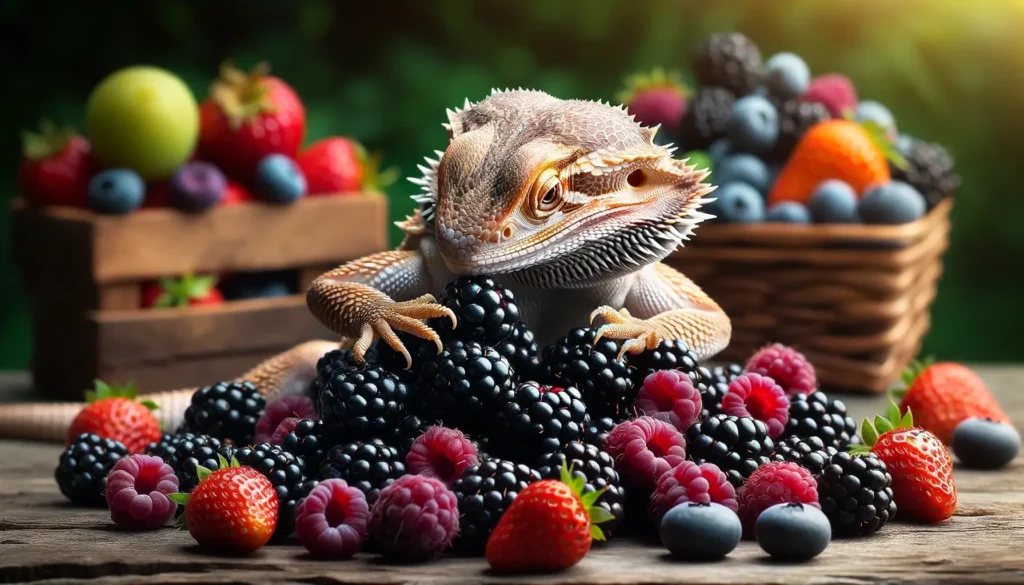
Blueberries are another excellent choice. They’re packed with antioxidants that can help protect your pet’s cells from damage. Yet, like strawberries, they contain a substantial amount of sugar and should be offered in moderation.Raspberries are relatively low in sugar compared to other berries and offer a good mix of vitamins and minerals. They are particularly high in manganese, a nutrient that aids bone health and metabolism.
Lastly, consider cranberries. These berries are high in vitamin C and fiber yet low in sugar, making them an ideal addition to your bearded dragon’s diet. However, some dragons might not find them palatable due to their tartness.

